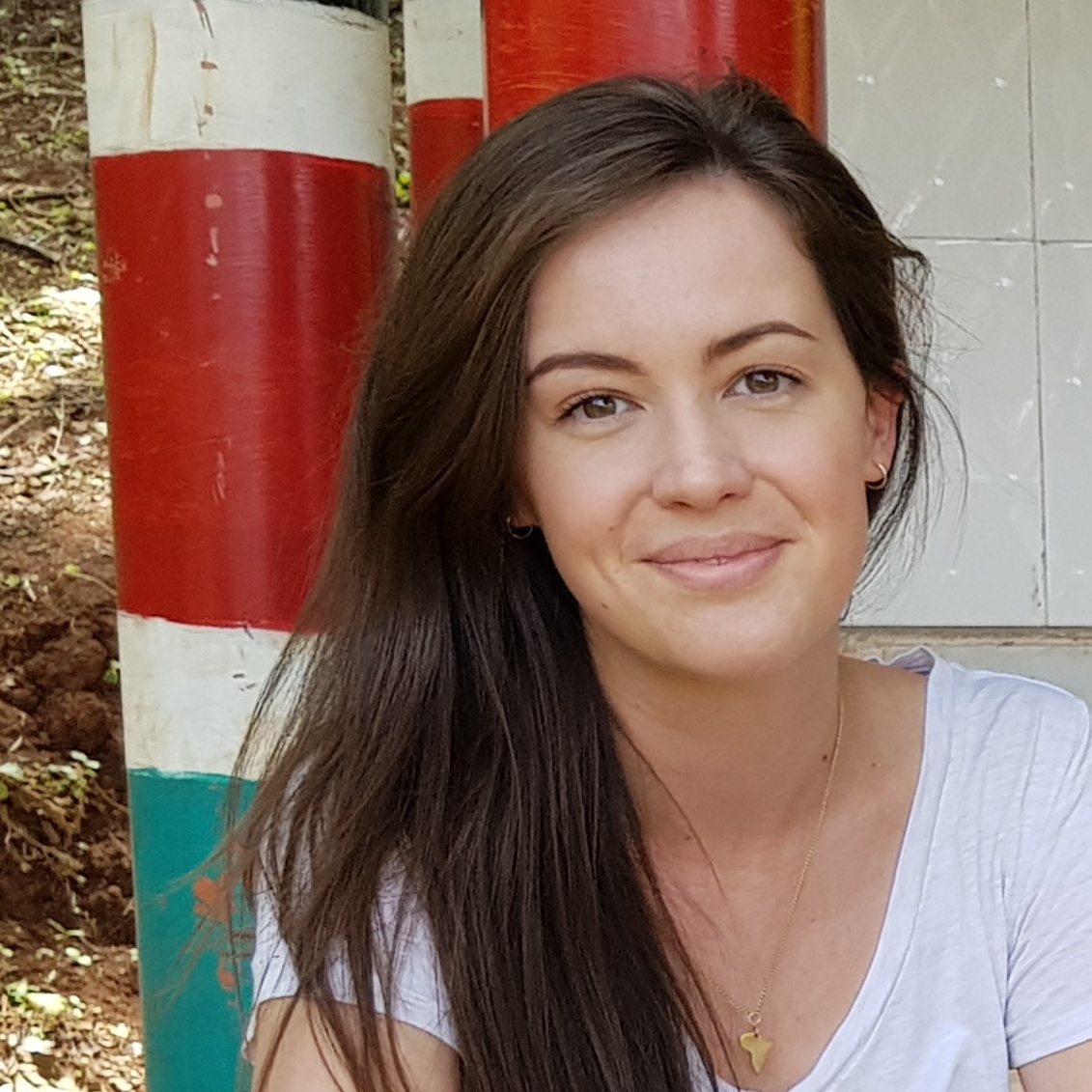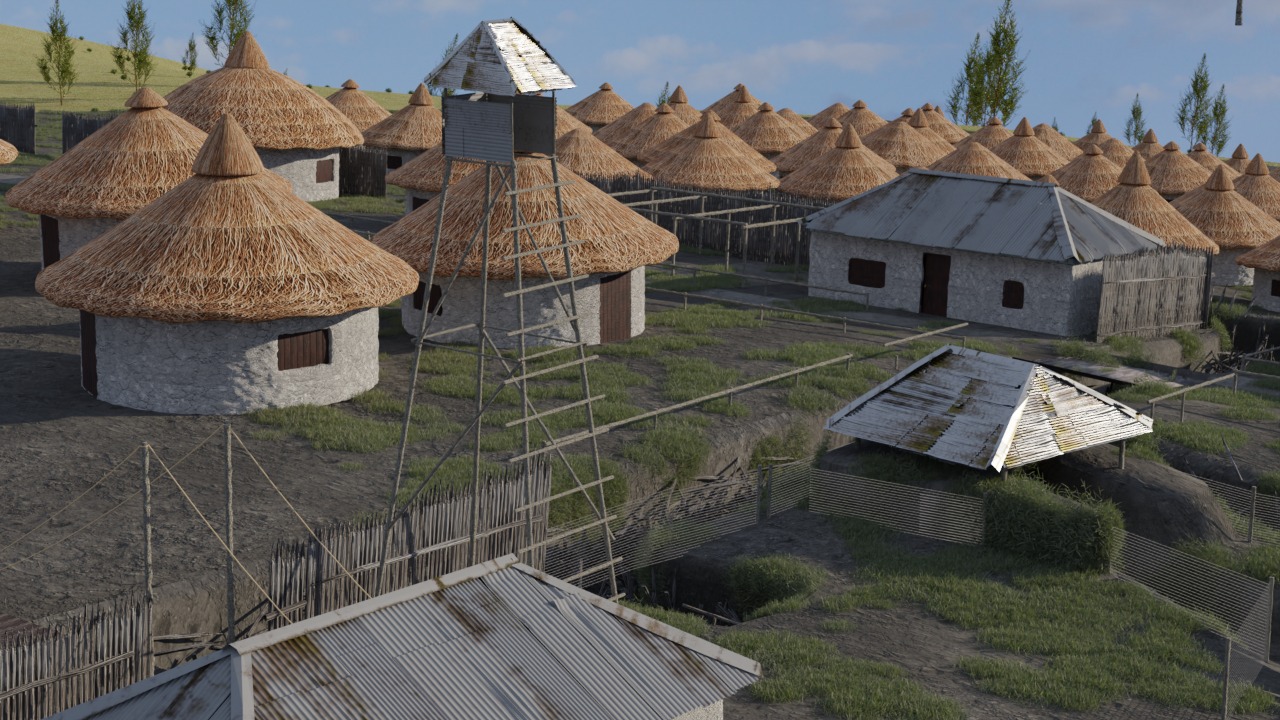In the latest in our regular feature, we caught up with Beth Rebisz to hear about her a recent exhibition she worked on in Nairobi. Beth is a Lecturer in the History of Modern Africa. Her research explores Kenyan women’s experiences during the Mau Mau conflict, 1952-1960. In doing so, her research focuses on Britain’s forced resettlement of Kenyans during this period and considers the relationship between colonial counter-insurgency warfare and international humanitarianism in the late-colonial era.
Hi Beth, thanks for joining us to talk about the exhibition you’ve recently been working on. Can you tell us what ‘Barbed Wire Village’ is about?
During Britain’s campaign against Mau Mau insurgent fighters in Kenya, 1.2 million civilians, mainly women and children, were forcibly resettled into spaces the colonial state called ‘villages’. Many colonial administrators saw Kenyan women as key actors in sustaining Mau Mau efforts, yet studies exploring this conflict often neglect this fact.
Over the course of three months in the Spring of 2019, I conducted an oral history project, interviewing women from the central region of Kenya to better understand how they experienced Britain’s ruthless campaign and I was interested to know more about this villagisation scheme. Through my findings, I argue that Britain deliberately sought to occlude the violent nature of these spaces by calling them ‘villages’ rather than concentration camps. Women and children were essentially incarcerated in camps heavily fortified and under constant surveillance. Violence, torture, and starvation was rife.
While colonial records contain some images of these camps, they are very limited. So, I worked with digital experts at African Digital Heritage, a Kenyan organisation, to construct a 3-D digital reconstruction of a camp based on descriptions shared with me by my interview participants.
Bringing all this research together, myself and colleagues at the Museum of British Colonialism and African Digital Heritage launched an exhibition last month in Nairobi called ‘Barbed Wire Village’. You can find it here!
How did you become interested in this?
I’ve been interested in the history of this conflict since my undergraduate degree.
Around the same time that I was choosing my dissertation topic, Mau Mau war veterans were taking the British Foreign and Commonwealth Office to London’s High Court to sue them for the historic atrocities Britain committed in Kenya during the 1950s. At the time, I knew nothing about this history, like many others in the UK, due to Britain’s deliberate attempts to suppress this from mainstream and public history discussions.
I attended a couple of the witness hearings, sitting in the public gallery, and decided to pursue further research into the topic. While my BA and MA research was based on the colonial records housed in the UK, I always knew I wanted to consider social histories of this conflict and apply more ethnographic approaches to contribute to ongoing efforts in Africa to recentre African voices and experiences of colonialism.
African women in particular are actively written out of colonial archives, therefore conducting oral history interviews was an imperative route for the inclusion of these most marginalized narratives.
What is the importance of this story today?
Britain actively sought to suppress this history and construct its own narrative of these events in Kenya.
They secretly removed any archival evidence relating to the violence it committed to ensure this. Historians therefore have a duty to create better and more nuanced representations of this history and make it more accessible to the people it directly impacted. The sheer inequality of Kenyans having to travel all the way to London to consult records relating to their nation’s independence continues the perpetuation of these colonial power dynamics.
So being able to exhibit this research in Kenya as well as online, means we can work toward more accessible and equitable initiatives which centre human experience.
What advice would you give to a student interested in working in a similar area?
I would encourage students to continue innovating our discipline and finding creative ways to display and explore history. If they are keen to recentre marginalized voices in their research, it’s important to listen and learn from scholars and practitioners, particularly in the Global South.
What’s the best advice you ever got about history?
Stay curious and when looking at a primary source, ask why… until you can’t possibly ask it any more!
What’s the most interesting thing you’ve read in the last twelve months?
I’m not going to pretend I’ve had the time to read all chapters of it yet, but Olajumoke Yacob-Haliso’s and Toyin Falola’s Palgrave Handbook of African Women’s Studies.
It’s the first of its kind and is truly excellent. It is such an extensive collection of research which debunks misleading myths about African women and their positions in the societies they operate within.
If you had a time machine, where and when would you most want to go?
You’re probably looking for a serious answer relating to my research, but I guess I’d go back to the day when I died my hair bright red.
And I’d say to myself, ‘please don’t do this. Just, please don’t.’
Falafel King or Eat a Pitta?
Falafel King is the hill I am willing to die on.
I hope my Tuesday Rethinking History seminar group are thinking long and hard about how they betrayed me when they so ruthlessly shut me down and declared their preference for Eat a Pitta.
What are you working on next?
Lots of things!
I’m working away on my book currently so that will keep me fairly busy. In addition to that, I have a few new projects on the horizon which will extend my oral history project in Kenya and another which is looking more closely at the women who shaped Red Cross activity in Africa in the late-colonial and so-called post-colonial era.
Sounds amazing! Thanks for joining us, Beth!


